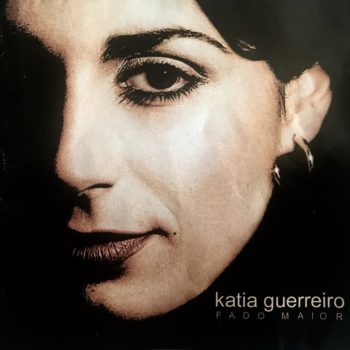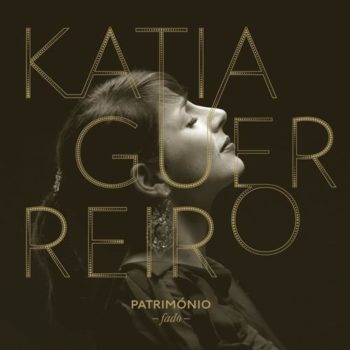Katia Guerreiro

The soul has always been at the forefront of Katia Guerreiro’s singing. A true mirror of her heart, of her joys and sorrows, a reflection of her inner life, of her dialogues with her loved ones, her audience, her country and the world.
On this new repertoire, she confesses to the mixture (Mistura) that has shaped her. She confides her strengths and weaknesses, asserts the need for rebirth and her thirst for discovery.
Growing up on the island of São Miguel in the Azores has made Katia Guerreiro as much an islander as a traveller. Before lighting up the stages of the world, her first departure was naturally for Lisbon, which has become her home port. She became a doctor and soothed people with her singing. She mastered her voice in the casa de fados and her faith in the example of Amalia Rodrigues.
While developing an original palette that has distinguished her as a sincere and moving fadista, Katia regularly returns to Amalia’s tutelary repertoire. In Mistura, dominated by the original works she inspired, a black shawl (Xale Negro) floats on the waters, just as it seemed to float on the shoulders of her legendary elder when she gave herself over to fado. Set to a melody by the illustrious Alfredo Marceineiro (1891-1982), this new text is by Manuela de Freitas, a literary actress who also wrote Tempo de Viver set to music by guitarist Pedro de Castro and Lisboa Perdeu A Voz with music by Tiago Curado, who also designed the graphics for this record.
The first two of these fados were produced during the sessions for her previous album Sempre (2018) by José Mario Branco, the singer’s husband, guide and accomplice. This author, composer, performer and arranger, who died in 2019, was one of the symbols of the struggle against Salazar and the great renovator of post-dictatorship fado.
Katia is fully part of the great history of fado, summoning up the great figures of the past and present and paving the way for the future, while remaining faithful to the essence of this music and to her family of authors, composers and musicians.
To complement José Mario Branco’s work, it has enlisted the help of two of its historic sound architects: Tiago Bettencourt, who notably directed the 2014 recording of Até Ao Fim, has taken charge of three songs, including Que Passo Quers Sar, which he wrote to measure for her. And the lion’s share of the work went to his invaluable musical director Pedro de Castro. He produced the other seven, set seven lyrics to music and played his magical Portuguese guitar on the majority of Mistura’s tracks, either alone or in duet with another prodigy: Luis Guerrero, solo on two of them.
Several generations of songwriters come together in Mistura.
Born into a large family of fadists, Helder Mouthino, who is also her manager, gave her the text and melody for Já Nåo Me Perco No Mar, which underlines her freedom and the depth of her heart.
Two giants of Portuguese song, the author João Monge and the composer Zeca Madeiros, plotted together Vida de Fado, a philosophical portrait of her destiny as a fadista.
Since her very first steps, Katia has sung with the poet Maria Luísa Baptista, who entrusted her with two texts (Mistura and Esqueci-Me Da Alegria) before retiring in 2016. The same year saw the death of Carlos Mendoça, lyricist, dancer, costume designer and king of Lisbon carnival parades, whose Uma Pergunta Attrevida, set to music by Pedro de Castro, questions the future of fado.
His friend Pedro Rapoula, author and director of the Bogotá Book Festival, wove the traveller verses of Cais da Saudade into fado under the fingers of Pedro de Castro, like O Santo Antonio Na Aldeia, the evocation of a festive day by the popular poet Feliciano Da Silva.
Usually more rooted in contemporary sounds, singer Rita Redshoes wrote and composed Espelho Teu, an ageless melody about eternal love.
The musicians are also worth mentioning: the faithful guitar of João Veiga, the classical of André Ramos or the electric of Rui Veloso (on the title fado), the acoustic bass of Francisco Gaspar. They have shaped Mistura’s woody, deep or joyful setting.
In a career spanning more than 20 years, they have travelled the world, won international acclaim and given poignant recitals that have been rewarded with standing ovations, flowers, tender tears and emotional smiles. Always with her heart and soul bare, Katia Guerreiro has remained faithful to a fado that is unadorned, unfiltered and unfiltered, expressing timeless feelings then as now.
Albums
-

FADO MAOR
2002
-

NAS MÃOS DO FADO
2003
-

TUDO OU NADA
2005
-

FADO
2008
-

OS FADOS DO FADO
2009
-

10 ANOS NAS ASAS DO FADO
-

PATRIMONIO (EDIÇÃO ESPECIAL FRANÇA)
2011
-

Live at OLYMPIA (CD/DVD)
2012
-

ATÉ AO FIM
2014
-

SEMPRE
2019
-

Mistura
2023